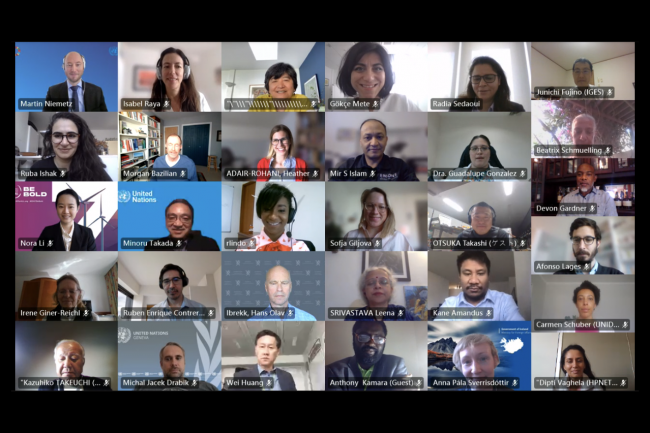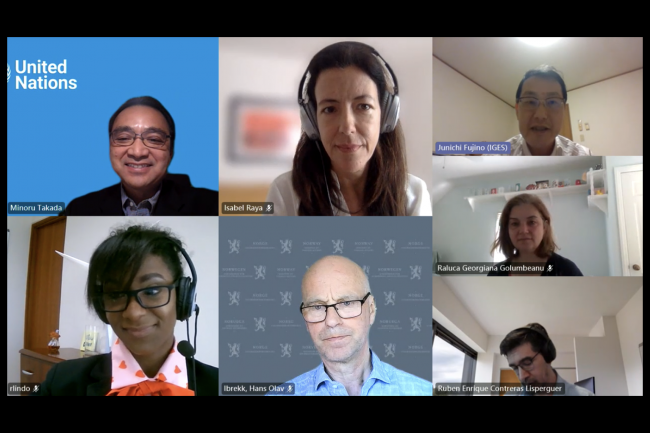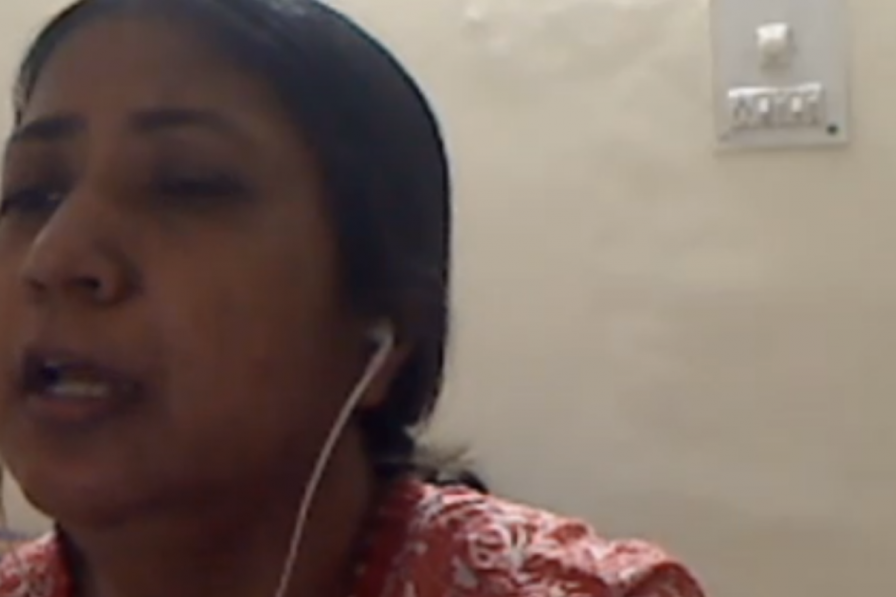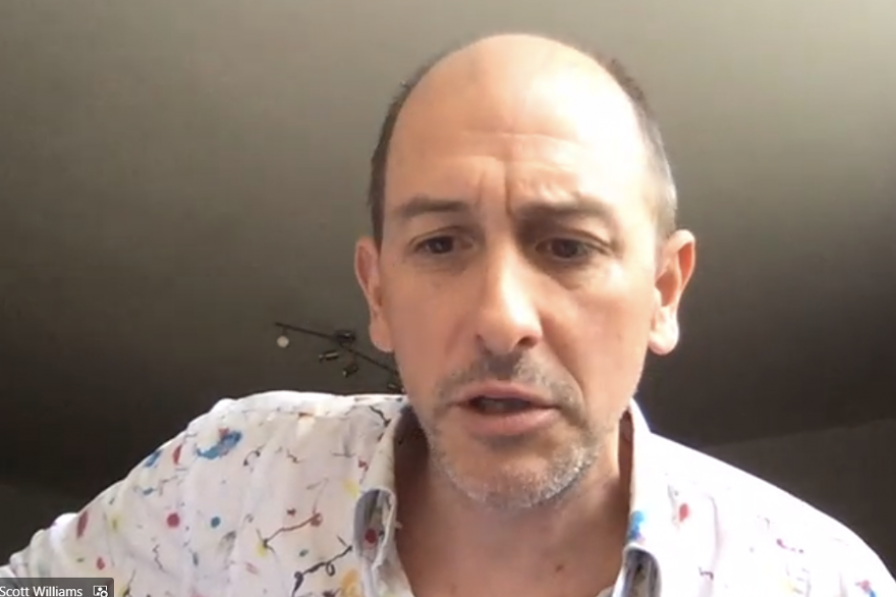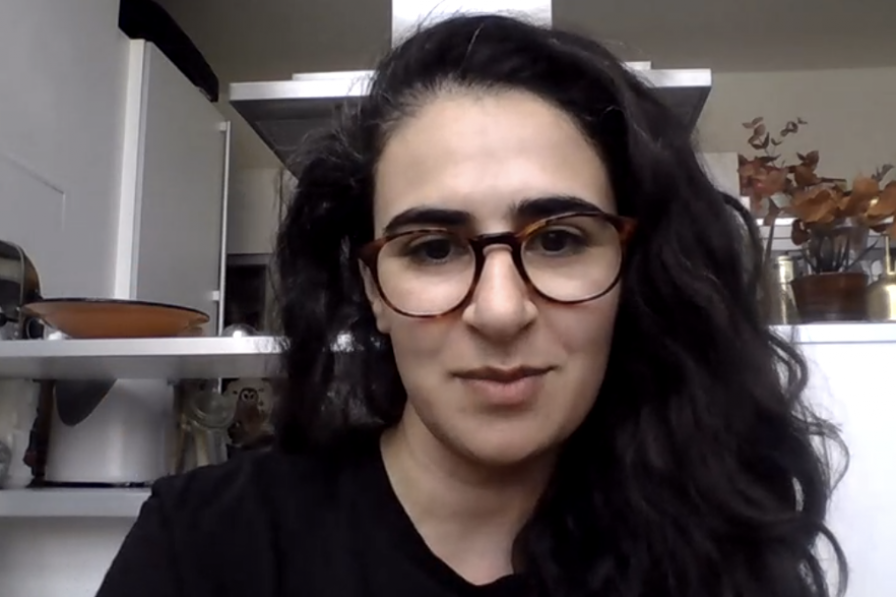In its second virtual meeting, the Technical Working Group on Enabling the SDGs through Inclusive, Just Energy Transitions identified ways to strengthen the draft report that had been prepared by the Group’s three co-leading entities: the World Health Organization (WHO), the UN Economic and Social Commission for Western Asia (ESCWA), and the UN Department of Economic and Social Affairs (DESA).
Participants proposed re-examining several concepts before finalizing the report, such as: what is meant by an “inclusive” and “just” transition; the timeframe for the future vision reflected in the Group’s recommendations; and how women can be incorporated as agents of change, not just beneficiaries.
The Working Group is one of five that are preparing a roadmap for presentation to the High-Level Dialogue on Energy in September 2021. The Technical Working Group on Enabling the SDGs first met on 25 February 2021 to provide initial input for the report. The second virtual meeting took place on 20 April 2021, with the participation of 61 experts.
Presentation of Draft Report
Opening the meeting, Minoru Takada, Team Leader, Secretariat of the High-level Dialogue on Energy, DESA, said achieving SDG 7 will accelerate the whole SDG agenda and the Paris Agreement on climate change. He noted the topic of this Working Group does not have established targets or indicators and encouraged the Group to create bold objectives.
Radia Sedaoui, Chief of Energy Section, ESCWA, presented the draft report of the Technical Working Group. She reported that Group members provided over 100 submissions and the co-leads also conducted consultations across sectors and across the UN.
Sedaoui said the draft recognizes a failure to reconcile several trade-offs identified in the 1987 Brundtland Commission report: between current and future generations, between affordability and sustainability, between economic growth and sustainable development, and between energy and Indigenous People’s rights.
Sedaoui added that when trying to manage interlinked issues, siloed decision-making leaves everyone powerless. The 2030 Agenda provides “the complete platform” for inclusive decision-making, but our institutions lack the capacity to carry this out, she explained.
The draft report presents recommendations in five areas: capacity and knowledge; institutions and governance; public policy; technology and innovation; and investment and finance. Sedaoui said a priority recommendation is investing in education both during childhood and beyond, to help ensure the energy transition enables the SDGs, and to help change laws and norms that disadvantage women.
Discussion
Participants split into three smaller groups to exchange views on the draft report. Rapporteurs then reported back on the main points discussed in each group.
Participants expressed several concerns with the draft, including that it is too long and lacks a clear analytical framework such as “people-planet-prosperity.” Some called for it to focus more sharply on energy as an enabler of progress and inclusivity and for recommendations that are less “generic.”
On the theme of energy enabling the other SDGs, one participant said the report should prove that SDG 7 is a critical component “like salt in a dish.” Another suggested the report should highlight specific ways in which the energy sector contributes to education (such as by enabling girls to study, energizing schools in remote areas, etc.). One speaker described the relationship between energy and the other SDGs as “a two-way street,” meaning energy enables the other SDGs while the social dimensions of the 2030 Agenda can guide a just and inclusive transition.
Some support was expressed for the report’s clear reference to Indigenous Peoples, although participants said the report should refer to inclusivity in a broader sense, and refer to engaging women, youth, and other vulnerable groups. Participants commented that women are not just beneficiaries of sustainable energy but also change agents across society. One speaker said the report should reflect women as “transformative powers” who also influence other SDGs.
A speaker highlighted the issue of land tenure for Indigenous Peoples and other communities affected by energy-related projects, such as extraction of minerals to produce batteries. He said the report could note the “business case” for respecting Indigenous Peoples' rights and the human rights of all affected communities: when communities’ rights are not included from the beginning they may organize protests and bring legislation, which slow down projects.
On the concept of just transitions, one participant suggested re-examining what is meant by “just.” He said financial and technical innovations are needed on the demand side, while discussion often focuses on innovations for the supply side.
On the vision reflected in the report, one speaker encouraged a longer timeframe, to 2050 and even beyond.
Several speakers recommended establishing an annual Sustainable Energy Day to reflect on energy as the cornerstone to achieving the Paris Agreement and take stock of progress on inclusive and just transitions. One participant suggested recommending that countries should link their nationally determined contribution (NDCs) under the Paris Agreement with their voluntary national review of national SDG implementation, and also connecting to national biodiversity strategies.
On the need for more specific recommendations, one participant suggested recommending transition training and vocational training to develop enough engineers and technicians. Another said the recommendations could go further, for example by calling to shift from fossil fuels to renewables and more decentralized systems, or, in the area of finance, going beyond microfinance to highlight green bonds, debt financing access, and guarantees.
Speakers said the report should be specific because it will be read by energy professionals who want to put the recommendations into their concrete plans. Others noted the report will have multiple audiences (private sector, youth, local governments, and others), and said recommendations should be differentiated. Participants suggested adding nuanced case studies and how-to guides. One speaker added that the report must offer recommendations to all stakeholders since the energy community cannot, by definition, deal with synergies and tradeoffs on its own.
Speakers also noted the need to localize recommendations, acknowledging the importance of local context and culture, or address how policymakers could localize the report.
Other comments on the report addressed: the importance of national statistical organizations for measurement of energy transitions; the role of national regulators in preventing corruption as governments engage with the private sector to finance the energy transition; and the need for COVID-19 recovery measures to include renewable energy investment.
Next Steps
Takada said the Secretariat will provide a new version of the draft report early in the week of 26 April. If possible, an additional meeting will be convened at the end of April or early May. He highlighted other upcoming milestones, including:
By 26 April, the executive summaries of all five Technical Working Groups’ reports will be shared with the members of all Groups, with an invitation to comment on linkages and overlaps between the reports.
- By 10 May, the final draft of all theme reports will be shared with the members of all Technical Working Groups.
- The final meetings of each Group will take place during the week of 17 May.
- The ministerial thematic forums will take place from 21-26 June and will be open to all Member States and stakeholders.
Takada said DESA is holding 40 virtual workshops to introduce the energy compacts to different constituencies. Workshops for members of the Technical Working Groups will take place in May.
Concluding the meeting, Heather Adair-Rohani, Team Leader on Household Energy and Health, World Health Organization (WHO), said the Group’s discussions had stressed the need for a very action-oriented report, containing recommendations that can lead to Energy Compacts. She said this is a particularly challenging report, but it will be critical for bringing out energy interlinkages and providing actionable items.
To receive continuing coverage of this event delivered to your inbox, subscribe to the ENB Update newsletter.
